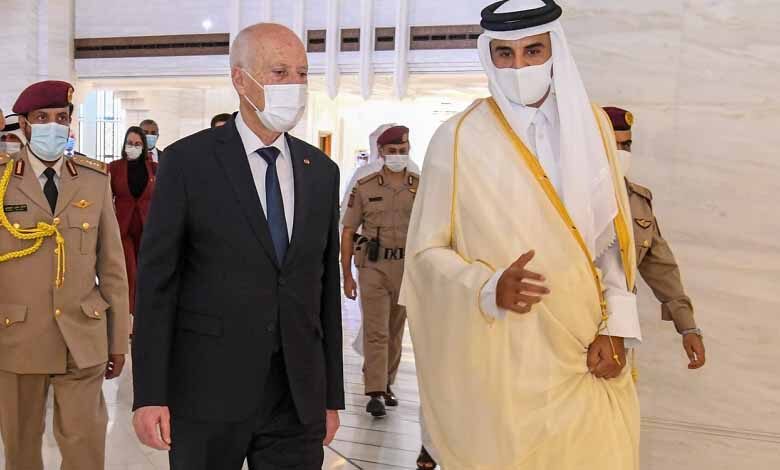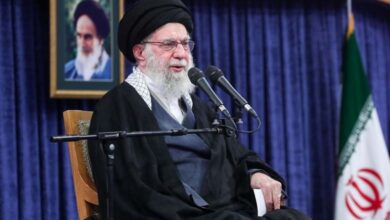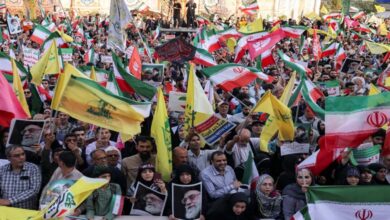After dropping the Brotherhood.. Qatar withdraws constitutional law presidency from Kais Saied

The Qatari regime is trying in all available ways, with its media power, its cyber flies, its mercenaries in a place, and the money of its people, to spread toxins in the Arab world, and to carry out its suspicious and subversive agendas.
As a country from the Arab world, Qatar has worked to sow discord in Tunisia, tried to play on the strings of Tunisian contradictions, supported the Brotherhood Ennahdha Movement for years, and last year decided to appoint President Kais Saied as president of a Qatari Association called the International Association of constitutional jurists, whose first conference will be held at the end of next year 2021
It also made a deposit for Tunisia, worth $500 million from the United States. Despite the nature of aid to the country that cannot alter the trajectories of the Tunisian economy, it imposed conditions that deepen the internal spirit of the social fabric of the country by linking this repository to the question of the cleansing of the atmosphere between Qais Said and the leader of the movement Ennahdha; The Speaker of Parliament Rachid Ghannouchi, who tries to use the former to be an instrument of division, not a symbol of agreement between the Tunisian people, but also to crystallize good positions of the Muslim Brotherhood; he is the right-hand man of Qatar.
And when he announced the creation of the International Association of Constitutional Lawyers, many questioned Qatar’s relationship with the constitutions, which are far from any democratic context or human rights, which enable it to approach these legal visions with a noble objective. In short, Qatar’s objective from Tunisia is to secure the networks of Qatari customers on Libyan soil, especially since there is a Qatari logistical awareness that Tunisia is the starting platform for the management of the security case in Libya.
Qatar also makes the bet that Tunisia will be an intellectual and logistical base for the reconstruction of the organization of the Muslim Brotherhood which has received and continues to bear hard blows in recent years in the Arab world because the base of the Brotherhood on the territory Tunisian does not only target the country’s population, The well-known stories of Qatari terrorism there, allied to the dysfunctional and occupied Ottoman Agha, underscore the importance of Tunisia to the Qataris.
Qatar’s attempts to exploit the Tunisian president are evidence of its reaction to what happened on Sunday night, when the latter took extraordinary decisions, freezing the powers of Parliament, lifting the immunity of deputies and stripping Prime Minister Hisham El-Machaichi of his office, in response to a popular uprising that demanded the overthrow of Ennahdha and the end of his lean years of rule.
In the wake of the Tunisian announcement, Qatar quickly withdrew the appointment of Kais Saied as president of the International Association of Constitutional Jurists, arguing that a coup d’état had taken place against the Constitution and democracy in the country, However, in reality, she saw her fraternal arm fall in Tunisia, which she had supported by all means for more than a decade. He sought to form a growing brotherhood that extended from Libya to Europe, to the Caucasus, through Cyprus and the eastern basin of the eastern Mediterranean basin, but it is a proud Tunisia that wants life, and it is finally necessary to save the Qataris, with their terrorism and their money.












